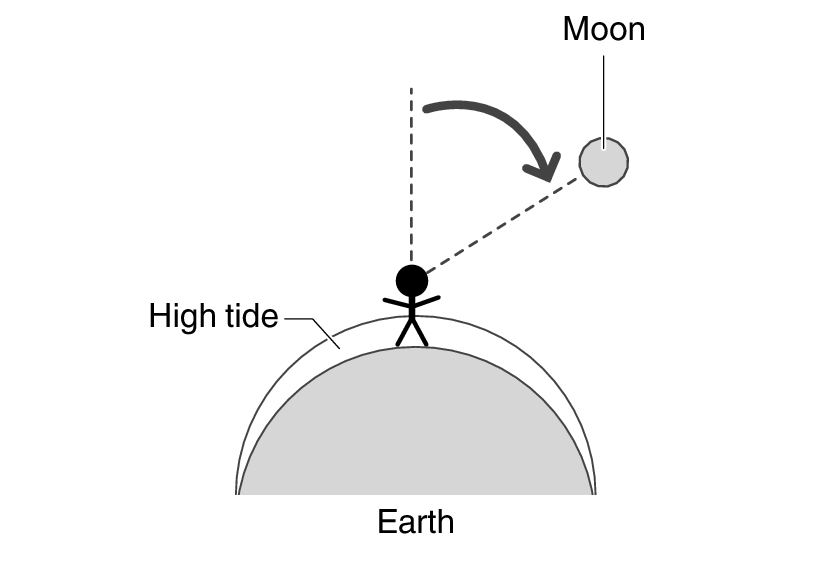Module No. 3559
Specifying Where You are Using the Watch
Use the procedures below to specify a longitude and lunitidal interval to specify the location where you are using the watch to check the Tide Graph and Moon age.
Note
The watch records the location you specify here in memory. However, you should re-configure this setting any time you move to a different location that is far from your current location.
Note that the initial factory default location setting is shown below.
Tokyo (UTC offset: +9, Longitude: 140°E)
Lunitidal interval: 5 hours, 20 minutes
-
Enter the Timekeeping Mode.
-
Hold down (A) for at least one second. Release the button when the seconds start to flash.
-
Press (C) twice.
-
Use (B) and (D) to change the Universal Time UTC offset.
-
Press (A).
-
Use (C) to select the setting item you want to change.
-
Configure the settings.
-
Use (B) and (D) to change the value.
-
Press (D) to toggle between [E] (east longitude) and [W] (west longitude).
-
Use (B) and (D) to change the value.
-
Repeat steps 6 and 7 to configure the longitude and lunitidal interval settings.
-
Press (A) to complete the setting operation.
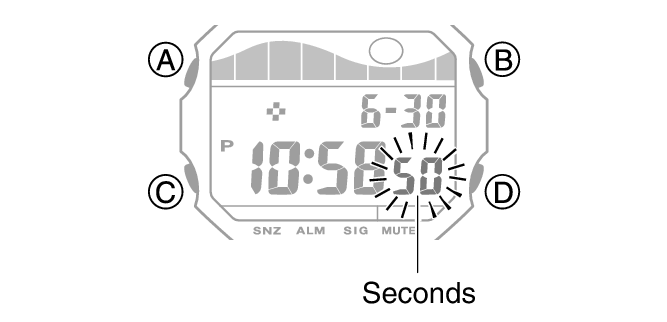
This causes the UTC offset digits to flash.
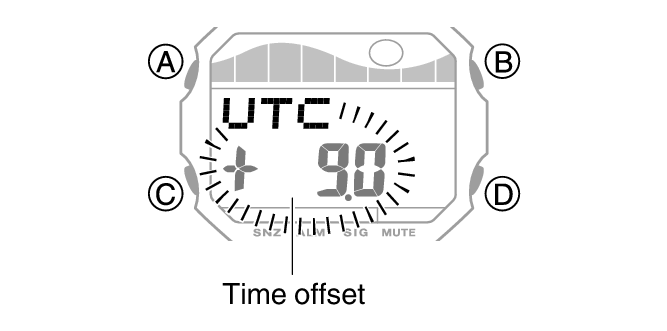
Holding down (B) or (D) scrolls through settings at high speed.
The UTC offset can be set in 0.5-hour units within a range of -12 to 0 to +14 hours.
This causes the longitude value to flash.
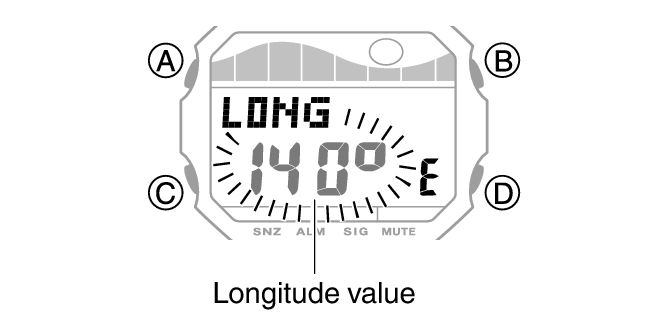
Each press of (C) cycles through setting items in the sequence shown below.
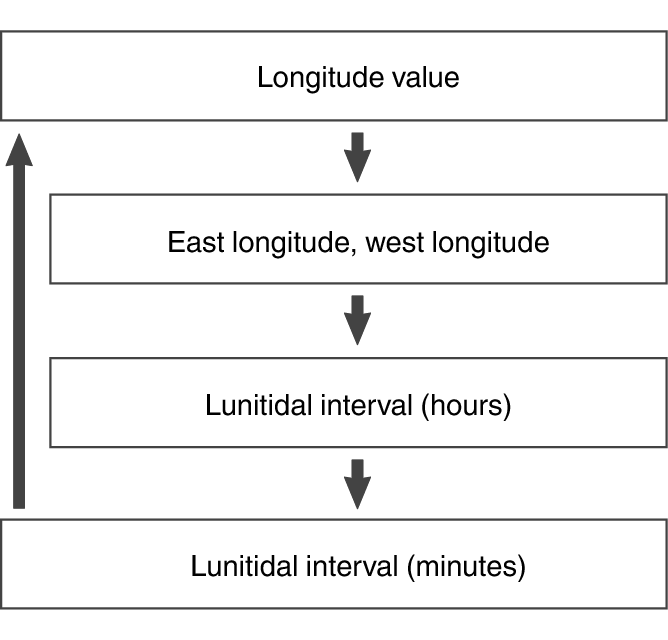
To configure the longitude setting
Holding down (B) or (D) scrolls through settings at high speed.
You can specify a setting within the range of 0° to 180° in 1° units. For fractional values less than 1°, round off to the nearest whole degree.
Example: For a longitude value of 50°40’, input 51°.
[LONG]
Indicates longitude (Longitude)
To specify east longitude or west longitude
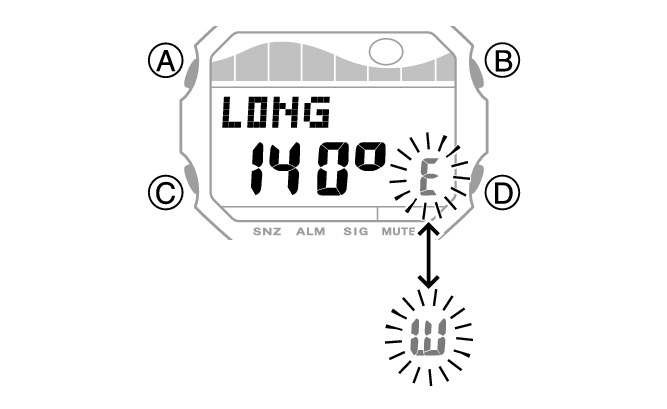
To specify the lunitidal interval
Holding down (B) or (D) scrolls through settings at high speed.
Use information available on the internet and from other sources when specifying the lunitidal interval.
[INT]
Indicates the lunitidal interval (Lunitidal Interval)
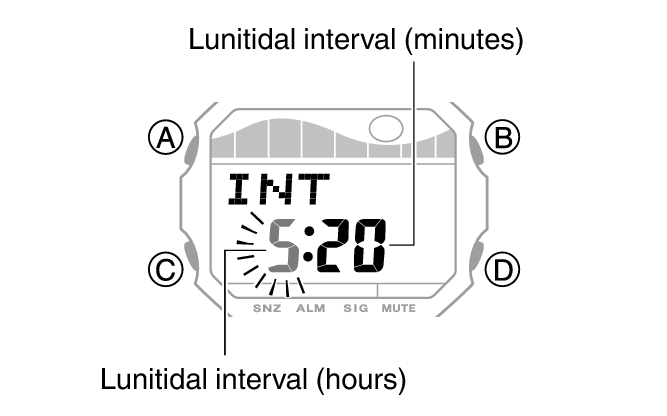
Note
While the setting is being configured, the watch will exit the setting operation automatically after about two or three minutes of non-operation.
Lunitidal Interval
Theoretically, it is said that high tide (peak tide) occurs when the moon reaches the meridian (Figure 1), and low tide (ebb tide) occurs about six hours later. However, in the real world, the effects of seawater viscosity, friction, and sea floor topography delay the high tide to some point after the meridian (Figure 2). This time differential is the “lunitidal interval”.
The lunitidal interval differs from one region to another, even within the same country or geographic area.
Figure 1
Tidal force is at its peak when the Moon is at the meridian.
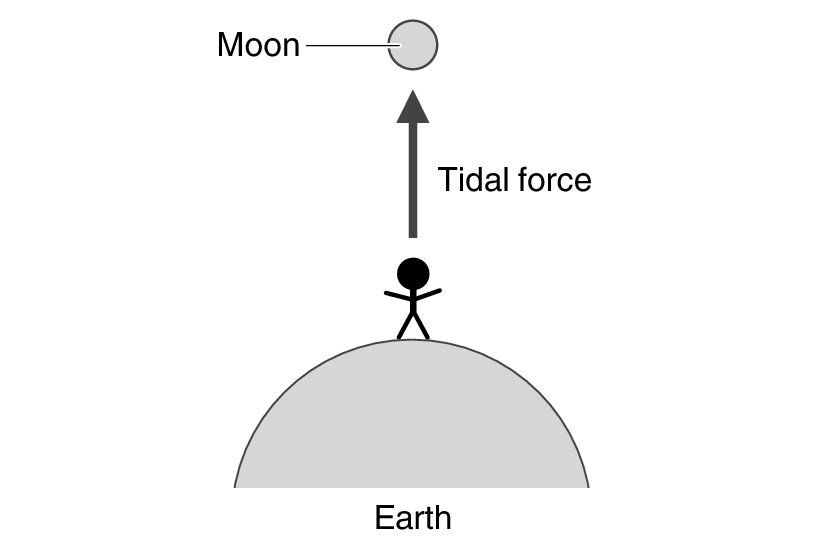
Figure 2
The actual high tide occurs a number of hours after the Moon meridian.
